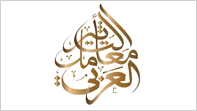Samples of reports The Tunisian agent of Ahmed Al-Mahdawi and his correspondence about the economic and administrative situation and the Tunisian legacies in Benghazi (1875-1879).
DOI:
https://doi.org/10.51984/johs.v21i2.2270Keywords:
The Tunisian agent, Ahmed Al-Mahdawi, Benghazi, The administrative and economic conditions, The Tunisian legaciesAbstract
The geographic nature has forced to Braga region, as well as the efforts of “The Sounusi” movement in facilitating a safe trade route with the country of Sudan, dictated the coincidence with the cumulative experience of the majority of the components of its society involved in that trade. The eastern way that started from Benghazi through (Jalo ,Oujela, and Alkufrah) in (Abasha) “the current Chad” was the targeted path as well. Also, the continuance of exchanging the local Arabic and the national goods between the two sides through this path. However, Benghazi Administration was paid an attention by the local people know the western Tripoli state and Tunisian trademen who were proved in the sample of the prior evidence were not shown, but found in Tunisia. Thus , this sample of private evidence in the file of “the Agent” of Tunisia at Benghazi.
This research shows “the agent’s performance in Benghazi and analyze his non- shown reports and letters about the administration’s economic and health conditions, in addition of the Tunisian legacy in Benghazi In sort of that it was the Tunisian trade-men legacy from (Jarba and S’faques) who learn trading with (Wadai). The magnificent of trading and the value of Tunisian trade- men legacy , the European voyagers who cross this path to get into (Wadai) , has arise a conflict between the “agent” of Tunisia before the orphans fund , the treasury of Tripoli State and the legacy of Benghazi to have this legacy or not. The objectives of this research focuse on the study of Tripoli relations field, The Tunisian - Benghazi legacy in the seventies of the nineteenth century.
Downloads
Downloads
Published
Issue
Section
License
Journal of Humanities Policy on Intellectual Property and Plagiarism
1. Commitment to Intellectual Property and Ethics
The Journal of Humanities (JOHS) is fully committed to respecting intellectual property rights and aims to protect the originality and authentic work of authors who submit their manuscripts for publication. The journal takes a firm stand against articles that contain any form of plagiarism and emphasizes the need for all researchers to adhere to the highest ethical standards in scientific research.
2. Anti-Plagiarism Policy
The journal considers plagiarism a serious violation of academic ethics. Therefore, authors must ensure that their work is original and not plagiarized, and that any use of external sources is properly cited and documented according to correct academic standards.
-
Actions Taken: In the event that any plagiarism or academic theft is discovered in a submitted article, the editorial board will contact the author to request a formal explanation within a maximum period of two weeks from the date of notification.
-
Investigation and Decision: After receiving the explanation, the article will be referred to the journal's specialized committees, which will investigate the matter and take the necessary measures, which may include the permanent rejection of the article and the imposition of disciplinary actions.
3. Publication License and Author Rights
The journal adopts the Creative Commons license type Attribution-NonCommercial-NoDerivs 4.0 International (CC BY-NC-ND 4.0), which allows for the following:
-
Attribution: Users are entitled to cite the content published in the journal and use it in their work, provided that the original source and author are clearly credited.
-
Non-Commercial: The published content may not be used for any commercial purpose.
-
NoDerivs: It is not permitted to make any modifications, distortions, or to build derivative works from the published content.
Under this license, authors are required to complete an exclusive license agreement for the journal. Authors retain the rights to their research data and may reuse and share their work for scientific purposes with proper citation.







